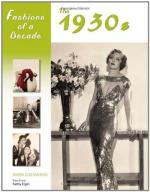|
This section contains 411 words (approx. 2 pages at 300 words per page) |

|
The labor colleges were an outgrowth of the noncommunist left-wing labor movement, particularly the socialist Industrial Workers of the World (IWW), and they were often supported financially by trade unions such as the International Ladies Garment Workers Union (ILGWU). Brookwood Labor College in Katonah, New York (founded 1921), Work People's College in Duluth, Minnesota (founded 1903), and Commonwealth College in Mena, Arkansas (founded 1925), were among such schools. Using innovative curricula and teaching methods, they trained labor organizers, journalists, and lawyers and provided extension-school and nontraditional instruction to adult industrial workers and farmers, as well as literacy courses to laborers who could not read or write. Commonwealth College abolished as "claptrap" collegiate institutions such as fraternities and sororities, varsity sports, and compulsory religious services. At Brookwood the curriculum was heavily geared toward instruction in labor history and economics; the course on advanced economics taught a variety...
|
This section contains 411 words (approx. 2 pages at 300 words per page) |

|




